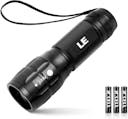
Hands selecting tools from a well-organized toolbox filled with a variety of instruments for repair and maintenance
Venturing into the world of DIY electrical repairs can be both empowering and risky. Ensuring safety is paramount and requires both knowledge and the right tools. This guide meticulously details the essential safety gear and tools needed to perform electrical repairs safely at home. From rubber gloves and safety goggles to protect against electric shocks and debris, to more advanced equipment like voltage testers and multimeters designed for a deeper understanding of electrical issues, each piece of equipment is vital.
The guide splits these tools into basic and advanced categories, catering to various levels of electrical tasks from simple wire stripping to handling complex circuit issues. It specifically highlights the significance of safety equipment such as arc-flash clothing and insulated tools, which are crucial to avoid accidents. Whether you are a novice looking to replace a light fixture or an experienced DIYer embarking on a comprehensive rewiring project, this guide ensures you are well-equipped and protected.
This thorough approach not only equips you with the necessary tools but also instills a mindset of safety first, enabling you to confidently tackle any electrical issues in your home.

